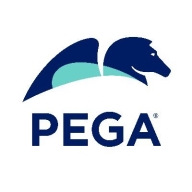

Find out what your peers are saying about Salesforce, Adobe, Shopify and others in eCommerce Platforms.
| Product | Market Share (%) |
|---|---|
| Adobe Commerce | 12.3% |
| Salesforce Commerce Cloud | 11.8% |
| SAP Commerce Cloud | 10.7% |
| Other | 65.2% |
| Product | Market Share (%) |
|---|---|
| Pega CRM | 6.7% |
| Microsoft Dynamics CRM | 19.8% |
| Salesforce Service Cloud | 14.2% |
| Other | 59.3% |


| Company Size | Count |
|---|---|
| Small Business | 22 |
| Midsize Enterprise | 3 |
| Large Enterprise | 5 |
| Company Size | Count |
|---|---|
| Midsize Enterprise | 2 |
| Large Enterprise | 8 |
Adobe Commerce offers IT teams a versatile solution to effortlessly launch personalized commerce experiences while ensuring security and speed, all without starting from scratch. It provides a solid foundation of commerce functionality that allows businesses to swiftly enter the market with confidence. With pre-configured composable services, businesses can easily deploy and integrate these services to enhance their commerce foundation. The platform also supports the creation and integration of secure and scalable applications that extend native capabilities and seamlessly integrate with third-party solutions in a serverless PCI-compliant environment. Thanks to App Builder tools, customization becomes more accessible, reducing the overall cost of ownership.
For commerce teams, Adobe Commerce provides a dynamic platform that adapts as customer needs evolve. It enables omnichannel personalization through commerce data, delivering personalized content, promotions, recommendations, and site search through advanced AI and machine learning. This translates to an increased reach to new markets, brands, or business models. The platform empowers users with business-specific, user-friendly tools infused with AI capabilities, thereby enhancing marketing and merchandising efforts. Moreover, businesses can expand their commerce capabilities further by choosing from a vast array of free and premium apps and extensions available in the Commerce Marketplace, covering everything from back-office integrations to customer experience solutions, making it a comprehensive and flexible commerce solution.
We monitor all eCommerce Platforms reviews to prevent fraudulent reviews and keep review quality high. We do not post reviews by company employees or direct competitors. We validate each review for authenticity via cross-reference with LinkedIn, and personal follow-up with the reviewer when necessary.